Book An Appointment
Sleep Dentist In Charlotte, NC, Providing Oral Appliances For OSA
Overview

What is Obstructive Sleep Apnea?
Sleep apnea is a serious disorder where a person's breathing is interrupted during sleeping hours. Those with untreated sleep disorders may stop breathing multiple times throughout the night. There are three types of sleep apnea: obstructive, central, and mixed. OSA is the most common and occurs when the upper airway is partially or completely blocked during sleep.
This causes the diaphragm and chest muscles to work harder to open the airway, often resulting in a loud gasp or body jerk. Central sleep apnea, on the other hand, occurs when the brain fails to signal the muscles to breathe due to instability in the respiratory control center. This type of apnea is related to the central nervous system and cannot be treated with oral appliance therapy. Mixed sleep apnea is a combination of both central and OSA.
Who Gets Obstructive Sleep Apnea?
What Causes Obstructive Sleep Apnea?
FAQs On Sleep Apnea Appliances
Q1: How do sleep apnea appliances work?
Ans: Sleep apnea appliances, such as oral appliances or mandibular advancement devices, reposition the jaw to keep the airway open during sleep, reducing or eliminating episodes of breathing cessation and snoring.
Q2: Are sleep apnea appliances comfortable to wear?
Ans: Yes, most sleep apnea appliances are custom-made for a comfortable fit. While there may be an adjustment period, many patients find them more comfortable than CPAP machines, enhancing compliance with treatment.
Q3: Can sleep apnea appliances treat snoring?
Ans: Yes, sleep apnea appliances not only help manage sleep apnea but can also reduce or eliminate snoring by keeping the airway open and preventing the soft tissues in the throat from collapsing during sleep.
Q4: What is a sleep dentist, and how can they help with OSA?
Ans: A sleep dentist specializes in treating sleep disorders like sleep apnea. They can evaluate your symptoms, provide diagnostic tests, and recommend appropriate treatments, including sleep apnea appliances tailored to your needs.


